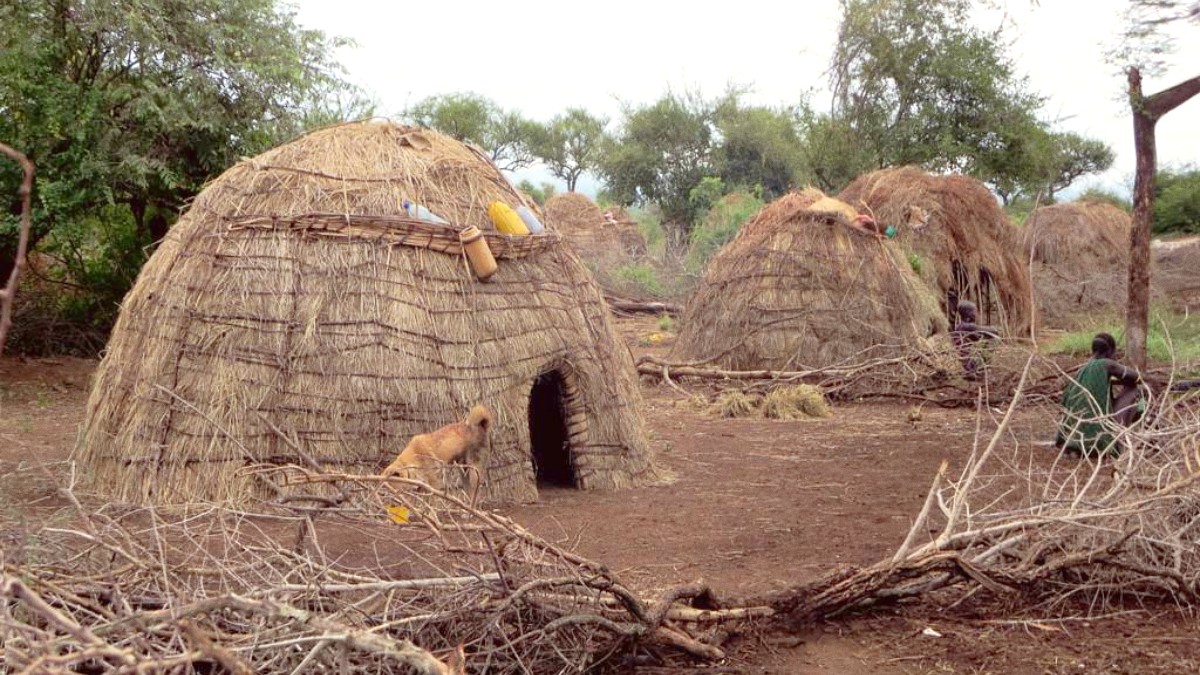
Ethiopia
Mago National Park and Omo National Park are protected areas. Conservation efforts are ongoing but face human encroachment, climate change impacts (like drought), and competition for resources.
Waste management is very limited in the Omo Valley. No formal recycling programs exist. Minimize your waste generation, avoid littering, and carry out what you carry in, especially non-biodegradable items.
Water is a precious resource in this semi-arid region. Be mindful of your water usage, especially in lodges. Take shorter showers and avoid excessive use, as water scarcity directly impacts local communities.
The Omo Valley's natural environment is important for its communities. Your choices help protect it.
Mago National Park and Omo National Park are designated protected areas. Conservation efforts are ongoing but face challenges. These challenges include human encroachment, climate change impacts (like drought), and competition for resources.
Support sustainable product companies that attempt to reduce environmental impact. Your purchasing decisions contribute to conservation efforts globally.
Choose operators that partner directly with local communities, ensuring fair compensation and education for respectful interactions. These initiatives benefit the people whose culture you explore.
G Adventures - Ethical ToursLook for operators who invest in local communities and prioritize cultural preservation, minimizing negative impacts on traditional ways of life.
Ecobnb - Eco-friendly AccommodationsCultural sensitivity is paramount in the Omo Valley. Your behavior directly shapes the interactions you experience.
Support tour operators and guides who prioritize cultural preservation. They work to provide fair compensation to local communities and educate travelers on respectful interaction. Choose operators who invest in local communities and help minimize negative impacts on traditional ways of life.
Learning a few basic local phrases, like a simple greeting or "thank you," shows respect. Dress modestly, covering shoulders and knees, especially when visiting villages. When observing ceremonies or daily life, maintain a respectful distance; do not interrupt or become a spectacle yourself.
This aspect of respectful travel in the Omo Valley is very important. Always ask permission before photographing individuals, and be prepared to pay the agreed-upon fee. This custom forms part of the cultural exchange. Do not photograph children without explicit parental consent. Avoid treating people as exhibits; capture moments that convey the dignity and beauty of their lives.
While formal religious sites (churches, mosques) are not the main focus in the Omo Valley, general respect for local beliefs and customs is important. This applies to traditional ceremonies and spiritual practices observed in villages. Always follow your guide's instructions on appropriate behavior and dress within these contexts.
When purchasing, consider businesses that support conservation efforts.
Find outdoor gear from companies with strong sustainability commitments, such as Patagonia.
Minimize waste by opting for reusable products from vendors like Package Free Shop.
Support conservation organizations like The Rainforest Site (GreaterGood), which often have online stores.
Mindful travel helps preserve the Omo Valley's unique culture and environment for future generations.
Support tour operators who partner directly with local communities. These initiatives distribute a fair share of tourism revenue to the people whose culture you are experiencing. Ask your operator about their community engagement programs.
Purchase crafts directly from artisans in the villages or at local markets. This directs money straight to the creators and their families. Bargain respectfully, remembering the effort and artistry behind handmade items. Do not drive prices down unfairly. Seek authentic, locally made items.
Eat at local eateries (if hygiene permits) and in lodges that source their food locally. Purchase drinks, snacks, and supplies from local shops and kiosks in towns. Your tour operator should employ local drivers, guides, and lodge staff, ensuring your money circulates within the community.
Be critical of activities that exploit local people or animals. Avoid sensationalized experiences that treat communities as spectacles without respect. Do not engage in activities that encourage begging or dependency. Giving money or gifts directly to children is generally discouraged for this reason. Prioritize authentic interactions over purely photographic opportunities.
Rather than direct handouts, consider donating to established local schools, clinics, or community development projects. Work through reputable non-governmental organizations (NGOs) or your tour operator who can verify the legitimacy of such projects. This way, your contribution has a lasting, positive impact on the community as a whole.
Support educational initiatives that uplift the community through learning opportunities.
Contributions to local health facilities improve access to medical services.
Donate to projects focused on long-term sustainable development for the entire community.
Direct giving to individuals, especially children, may unintentionally foster dependency or a begging culture.
Support verified projects through reputable organizations for effective, lasting positive contributions.